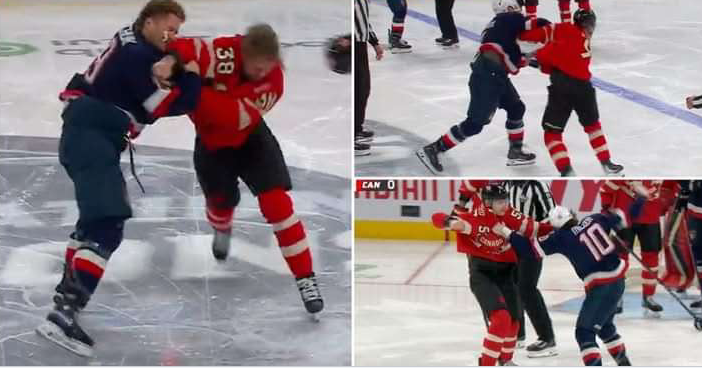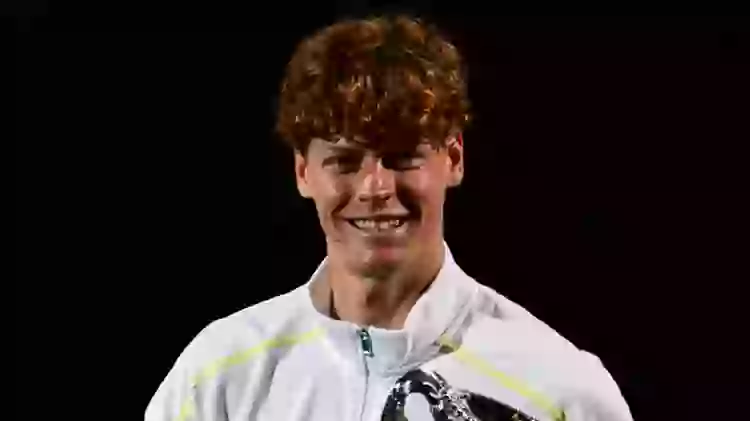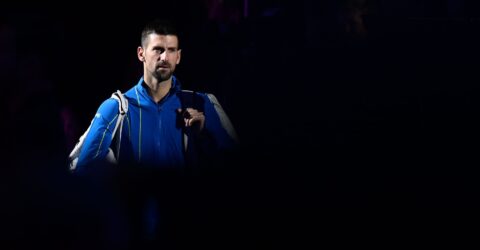When we think of tennis legends, one name invariably rises to the top—Rafael Nadal. Known as the “King of Clay,” Nadal has reigned supreme on this unique surface, accumulating an astonishing number of titles, including the elusive Grand Slam crowns. For many young players stepping onto the clay courts to face him, the daunting challenge can sometimes feel more like a rite of passage than a straightforward match. One such young talent, American Sebastian Korda, recently shared a lighthearted anecdote that encapsulates the awe and trepidation of facing Nadal on his beloved red dirt.

Clay courts are often described as a different entity from grass or hard courts. They demand specific skills and tactics, requiring players not just to have a solid serve or a powerful forehand, but also the ability to construct points patiently, slide into shots, and endure longer rallies. The slow nature of the surface can put players out of their comfort zones, especially those who favor faster-paced games.
Sebastian Korda found himself in this difficult position. The young American, like many aspiring tennis stars, had always admired Nadal from the stands and on television. But standing on the opposite side of the court from a player with Nadal’s prowess was an entirely different challenge, especially on the surface where Nadal is most feared.
In an interview shared across various platforms, Korda recounted the experience of facing Nadal in a clay court matchup. “Honestly, the first few games I was just starstruck,” he recalled, laughter evident in his voice. “You know, it’s one thing watching him dominate on YouTube or in person; it’s another being on the receiving end of it.”
Korda joked that playing against Nadal was like trying to solve a Rubik’s Cube while riding a roller coaster. “Every time I thought I was figuring something out, he’d change the color on me,” he quipped. This metaphor perfectly captures the unpredictable, strategic brilliance that Nadal brings to the court.
The American further detailed his recollection. “I was winning a rally—maybe, I thought I had him! I hit a perfect forehand down the line, and he just slides in with that ridiculous ability and returns it as if it was nothing. I remember thinking, ‘Wait, what? That’s not fair!’” The crowd, fully engaged, erupted with laughter, as Korda painted a vivid picture of playing a match he likely wouldn’t soon forget.
Ultimately, Korda’s experience against Nadal didn’t end in defeat, but in valuable lessons. While humor filled his account, it became clear that the young American walked away from the experience enlightened. “Rafa is just so talented on clay,” he acknowledged. “He has this way of making a player feel like they’re not even in the match sometimes. It’s like he’s painting a masterpiece, and you’re just a mere brush—trying to keep up with his strokes.”
Korda admitted that the match left him with a slightly discouraged feeling, common for many who find themselves in Nadal’s formidable presence. But he also recognized the value in competing against such lofty talent. “Afterward, I told myself, ‘I’m going to improve. I have to improve,’” he stated with determination. Korda’s humorous anecdote thus morphed into motivation—a reminder of the resilience and perseverance necessary in professional sports.
Rafael Nadal’s dominance has not just influenced the likes of Korda; it has impacted an entire generation of players. Young athletes look up to him not only as a competitor but also as a model of sportsmanship and dedication. His work ethic, competitive spirit, and humility resonate with those who aspire to not only match his skill level but also emulate his character.
For Korda, and many like him, the challenges of playing against Nadal are not merely hurdles but invaluable experiences that contribute to their growth as players—and as people. Players can gain insight into their own strengths and weaknesses, pushing them to elevate their game, refine their techniques, and foster their love for the sport.
Despite the challenges, Korda retains a sense of humor about clay courts, even vowing to improve his performance in the future, potentially with a gain in confidence after facing Nadal. “I mean, I might need to rethink my life choices about playing on clay,” he laughed, yet there was an unmistakable spark of competitive fire. “But I’m going back out there next time, for sure. You don’t win against a player like Nadal without learning something in the process.”
Korda’s anecdote speaks to a broader trend that transcends the sport. It emphasizes the importance of resilience and possessing a light-hearted attitude, even when faced with seemingly insurmountable odds. The humor in his narrative serves as a lesson to younger players: Regardless of the challenges ahead, approach every setback with laughter and determination to improve.
Sebastian Korda’s humorous reflection on his experience against Rafael Nadal resonates far more than simply a comical encounter. It serves as an emblem of what it means to compete at the highest levels of sport—facing your heroes and ogling at their brilliance while also maintaining the drive to get better. In Korda’s case, his resolve to return to the clay courts is not just about playing against the best; it’s a testament to his character.
Whether it’s competing against someone like Nadal or grappling with everyday challenges in sports and life, Korda’s story remains a compelling reminder that the journey itself—and the laughter shared along the way—often represents the ultimate victory. And, who knows? One day, we might even see Korda become a master on clay himself, proving that every challenge can transform into a stepping stone when accompanied by humor and an indomitable spirit. After all, the clay may be tough, but the player that emerges from it could be tougher.






